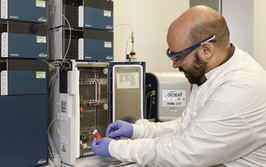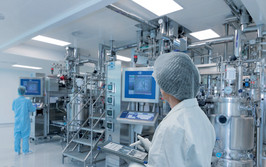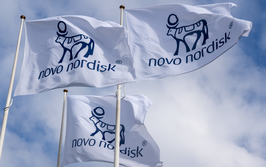The Sulforaphane Promise
Sulforaphane has therapeutic potential in numerous areas but formulation is key. Can enteric coatings help find the way forward?
Helen Kuhlman | | 4 min read

At Evgen, we have been exploring the anti-cancer properties of sulforaphane. In my view, this is a compound with enormous therapeutic potential backed by a wealth of evidence from pre-clinical research. Our lead asset, SFX-01, has undergone clinical trials in oestrogen-positive (ER+) metastatic breast cancer, and is also being investigated in glioblastoma, under an investigator sponsored study at the Erasmus University Medical Center, supported by a grant awarded to Dr Marjolein Geurts by the KWF Dutch Cancer Society. We’ve also signed an out-licensing deal with Stalicla SA to collaborate on a clinical program in autism, where Stalicla will use its proprietary DEPI technology to identify autism patients most likely to respond to SFX-01. In this article, I want to give a quick overview about our work with SFX-01 and the progress we have made so far.
Sulforaphane has shown potential benefits in a number of indications including neurodevelopmental disorders, oncology, and inflammatory conditions. Whilst the exact mechanisms are still to be fully elucidated, sulforaphane is known to exert a pleiotropic effect on the immunological response, which is dependent on the cell type/disease status.
A major challenge for the development of sulforaphane as a therapeutic is that it is a transient and highly unstable compound unsuitable for clinical development. The parent compound glucoraphanin originates from cruciferous vegetables, and is enzymatically transformed by myrosinase in the gut into the active sulforaphane. However, we have developed a technology that can synthesize and stabilize sulforaphane and novel proprietary analogues based on sulforaphane.
SFX-01 is a composition of synthetic sulforaphane and alpha-cyclodextrin, which is stable and suitable for clinical research (and hopefully eventual approval as a medicine!). Recently, we conducted a Phase Ib trial for an new enteric-coated coated formulation (developed in partnership with Seda Pharmaceutical Development Services). An enteric coat can delay release of the API, bypass the acid environment of the stomach, and target release to certain parts of the intestine where it is absorbed. By utilizing a coating that is sensitive to dissolution at higher pH, the tablet passes through the acidic environment of the stomach and only dissolves in the higher pH of the small intestine where the drug is then taken up. Minimizing API exposure in the stomach can prevent acid/enzymatic degradation of a sensitive drug and make the release profile more consistent between subjects.
The goal of developing a new enteric-coated tablet formulation was to achieve a predictable release profile and minimization of potential gastro-intestinal side effects at higher dosages. Avoiding dissolution of the tablet in the stomach minimizes the time that free sulforaphane is in contact with the acid/enzyme environment of the stomach, minimizing the potential for degradation and irritation of the stomach lining before absorption. The new formulation will replace our previous prototype capsule formulation, and will be suitable for large scale trials and commercial supply.
Our phase Ib study investigated how sulforaphane released from the enteric-coated tablet formulation was absorbed from the intestine and its effects on the physiology of healthy volunteers. The study was a double-blinded, placebo-controlled modular design involving three cohorts of volunteers, each receiving different doses of SFX-01 or matching placebo. And the results were good.
Based on the time course seen, sulforaphane was released by the new enteric coated tablet beyond the acid environment of the stomach. Total blood levels of sulforaphane (SFN) and SFN-metabolites were confirmed in the micromolar range, where efficacy is seen in vitro. Additional pharmacodynamic exploratory investigation, utilizing mRNA sequencing, showed changes in gene expression after dosing with SFX-01 even in healthy volunteers. No serious adverse events were observed.
Changes in gene expression were measured by mRNA sequencing on participants’ blood, for placebo and SFX-01 treated subjects that received 600 mg once daily. The initial analysis identified a large number of significant differentially expressed genes in the SFX-01 treated group, between blood samples taken before the first dose was administered (baseline) and blood samples taken after the first dose timepoint (6 hours after first dose). Further analysis will be undertaken on this large and complex dataset to gain insight into the particular genes identified. More disease-related mechanistic insight will also be provided from future clinical studies in patients.
The future clinical development of SFX-01 is highly exciting. With recent evidence that it augments the effects of radiotherapy and other anti-cancer therapeutics, it has the potential to bring substantial benefit to patients. However, formulation is key to successful drug development and the end goal of improving outcomes for patients – only with effective drug delivery will we be able to gain the exposures necessary to cause effect in target tissues. We believe our new formulation achieves these goals.
Chief Business Officer, Evgen Pharma



















